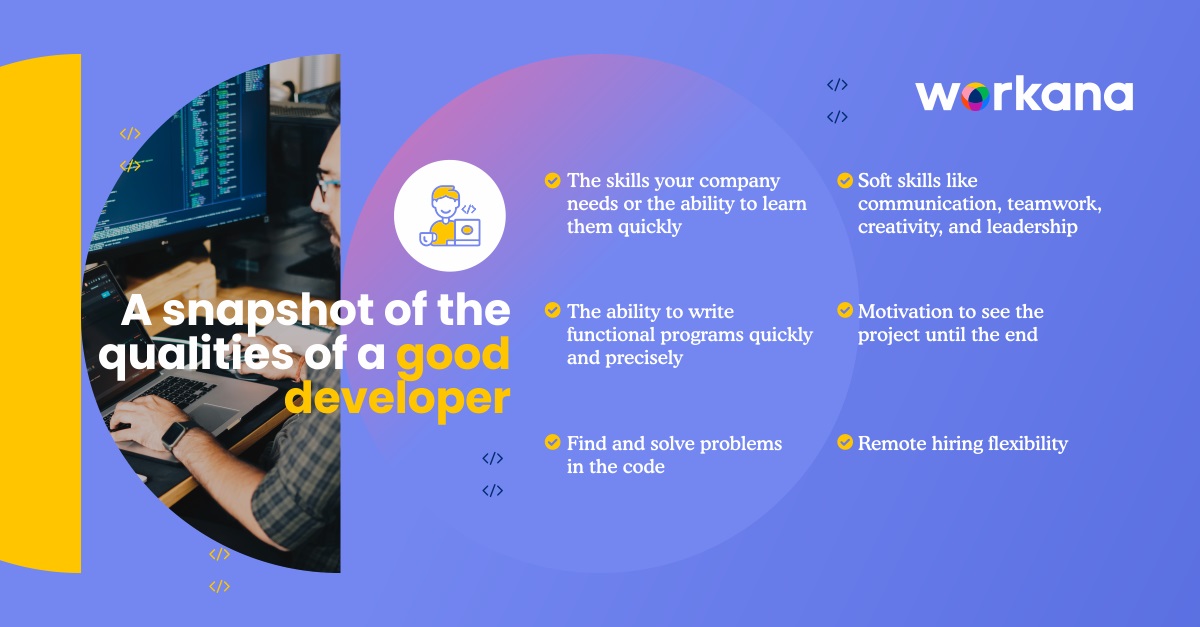It’s no secret that (good) developers can be hard to find. But is there really a shortage of qualified developers, or is it more of a recruiting issue?
Some think it’s a shortage while others think it’s a matter of recruiting. We think it’s a combination of both.
There’s no getting around the fact that the demand for technology is growing at a much faster rate than what developers are capable of creating. Not even the most brilliant code can solve multi-million dollar problems. Conversely, a single error could cost millions.
It isn’t hard to develop basic software that evidently works. But developing high-level software that works without any errors, integrates well with the technology infrastructure that it interacts with, and scales along with company growth is hard to do.
Let’s look at a few numbers:
- Due to the developer shortage, there are 40 million job openings that cost companies $8.5 trillion per year.
- The U.S. Department of Labor predicts that the global software engineer shortage could impact up to 85 million jobs by 2030. It also predicts that the demand for software engineers will continue to grow at an annual rate of 22%.
- In 2022, the number of job openings for developers reached 1.8 million in the U.S. alone.
- 63% of senior executives interviewed by Gartner expressed serious concern about how difficult it was to find software developers.
- On average, it took 66 days to find the right developers, which was 50% higher than the time it took to find other positions. It’s estimated that companies lose up to $680 of profits for every day that the job opening remains unfilled.
Why is it so hard to find a developer that’s a good fit for your company’s needs?
1.- There’s too much specificity
According to Indeed, the issue isn’t attracting candidates; it’s that very few of those candidates actually meet the requirements. A recent ICBM report found that the number of applicants to tech positions is up to two times higher than the number of applicants for other positions.
In other words, it’s not because of a lack of talent in the computer science fields. In fact, the number of people who enter the IT field triples year after year. Rather, since the IT field is so broad that there’s a gap in talent that has the specific skills combinations that companies are looking for.
To give you an example, right now there are at least 700 programming languages, and that number is constantly growing. Though some are more popular than others, that leaves us with at least 20 or 30 languages that are in high demand, and the expertise for these languages is spread out among different devs.
Knowing how to code isn’t enough; devs also have to be familiar with processor architecture and how it’ll affect the code’s performance, among other things.
2.- Soft skills add an extra layer of difficulty
What’s more, devs need to have a wide range of soft skills like communication and teamwork, and project managers and team leaders need to have leadership skills and extensive technical knowledge.
3.- Good in-house programmers tend to be very expensive
Budget is another important factor. If you’re a Silicon Valley tech giant that can afford to hire brilliant talent and train them at programming boot camps, you can probably recruit any talented in-house developer that you want.
But if you’re a startup or even a big company that isn’t a tech titan, budget will always play an important role.
4.- Recruiters don’t have an in-depth understanding of technical profiles
If all the factors above didn’t make finding the right candidate hard enough, there’s more: a lot of times, terms like “Hadoop”, “MapReduce jobs”, “Pig Latin scripts”, “hive QL”, “Loading data tools”, etc. are just key words that mean nothing to recruiters. As a result, all of the keywords carry the same weight to them.
If they’re in a rush they’ll only interview candidates with one or two of those keywords on their resume. However, if they aren’t in a rush, they’ll reject candidates who don’t have the majority of the keywords on their resume, even though the ones that may be missing from a candidates resume are relatively easy to learn.
5.- There are regions where devs are in high demand
It should be noted that the places where big tech companies are headquartered siphon off all the available talent in the area, leading the other companies to find alternatives in other places.
How and where can I find qualified developers without spending thousands of dollars on recruitment?
It may seem like the talent pool is shrinking, especially if you restrict yourself to hiring in-person and/or in-house employees with university diplomas.
But what would happen if you cast a wider net by making your search global and recruit based on strategic skills instead of pedigrees?
A big part of the problem is that employers can be resistant to upgrading their work models when remote work already provides the conditions necessary to find highly committed, certified devs in other areas. What’s more, remote work offers total hiring flexibility when it comes to hiring.
At Workana, we’re specialized in helping startups and companies find talent with the skills that they need. We evaluate, certify, and interview every profile from start to finish.
With our elite tech talent community and our matchers’ extensive technical knowledge, you can hire the programmer you need in an agile manner while saving up to 30% on hiring costs.
Ready to expand your horizons and cast a wide net? Get in touch now with us now, and get ready to work with the dev of your dreams!
You may also be interested:
- New Hiring Methods and Their Benefits
- 5 Benefits of Using a Talent Consulting Firm
- Pro Tips For Managing Remote IT Talent Teams
- What Are OKRs? How Can I Use Them to Increase Remote Work Efficiency?










